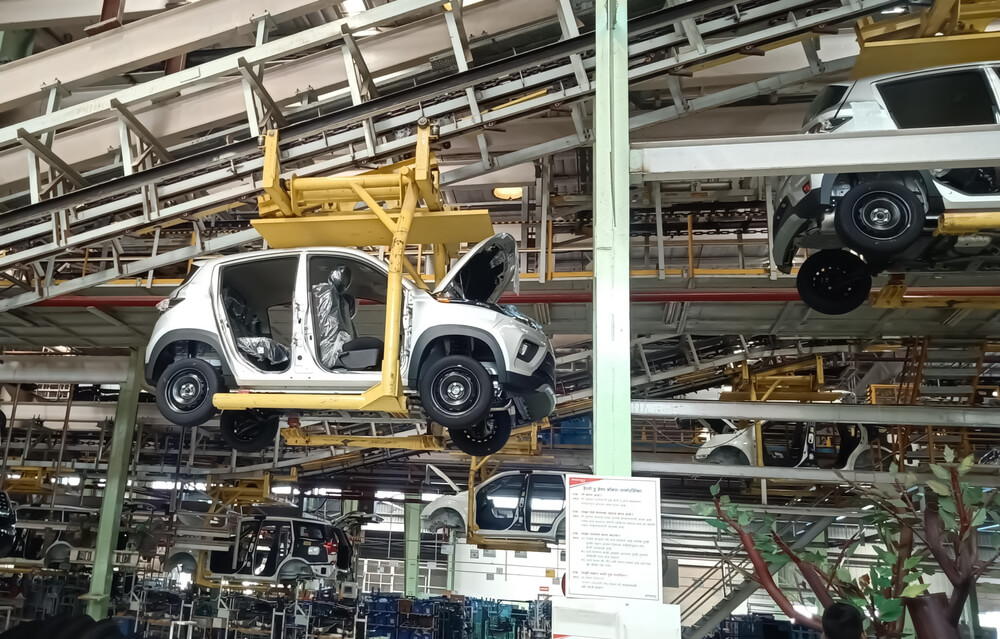It is the second year in a row that Indian PM Narendra Modi has bypassed the annual summits with Russia. However, Moscow is in no position to have any objections.
The last bilateral annual summit was in New Delhi in December 2021, and since then, PM Modi has not travelled to Moscow, and Russian President Vladimir Putin did not participate in this year's G20 summit in New Delhi.
Moscow had to be satisfied with the arrival of the head of Indian diplomacy, Subrahmanyam Jaishankar, this week at the regular appointment reserved for the meetings of the 2 countries’ leaders held for the last 20 years.
India is a vital economic partner for Russia, given that its economy is under sanctions and isolation after its aggression against Ukraine.
In such conditions, Moscow has no room to complain about the diplomatic treatment it has received from India in the last 2 years.
There is every reason to be satisfied with this week's visit of Minister Jaishankar because it was an opportunity to announce the start of negotiations on India's Free Trade Agreement with the Eurasian Economic Union (EAEU), in which Russia has a dominant position, for January.
Different interests and enthusiasm
This customs union of 5 former states of the USSR (Russia, Belarus, Kazakhstan, Kyrgyzstan, and Armenia) has existed for 8 years as a project that was supposed to copy the European Union. However, it has not progressed far.
Russia accounts for almost 90% of the total economy of this alliance, with a combined GDP of about $2.5 trillion. This significant disproportion has been reflected in the way of decision-making and all internal relations.
Moscow is interested in much larger imports from India than before
From Moscow's point of view, the forthcoming negotiations will essentially be an India-Russia FTA negotiation, which is generally the case, but India's position on those negotiations is somewhat different.
The 2 countries lack the same enthusiasm and interest in their approaches.
Moscow is willing to give its Indian partner several concessions since the FTA, if one exists, is far more significant to Russia than it is to India.
Moscow is interested in much larger imports from India than before. This is a consequence of years of economic isolation and the lack of goods and equipment from the West, and thus, Russia regards India as a crucial supplier of missing goods.
 Russia would offer India a series of specific measures as a concession through the future FTA, given that it is interested in importing more than 500 missing products, blocked by Western sanctions
Russia would offer India a series of specific measures as a concession through the future FTA, given that it is interested in importing more than 500 missing products, blocked by Western sanctions
In this respect, Russia would offer India a series of specific measures as a concession through the future FTA, given that it is interested in importing more than 500 missing products, blocked by Western sanctions, without which its crucial sectors could not maintain business. Amongst other things, this involves cars, aeroplanes, and trains.
The trade imbalance in the Russian-Indian exchange has increased sharply in recent years, thanks to India's significant imports of Russian oil, which is cheap for India due to the US$60 per barrel ceiling cap imposed by Western countries.
The significant import of Russian oil contributed to the fact that the total import from Russia to India in the last fiscal year increased fourfold, to about $46 billion.
Moscow's significant concessions
The concessions that Moscow is ready for does not particularly impress India. When Russian Deputy Prime Minister Denis Manturov spoke about them in detail in New Delhi last April, Indian Foreign Minister Jaishankar did not mention the FTA with Russia.
While the question of trade with India is equal to the existence of Russia, India's interest is different and driven by economic pragmatism. The import of oil from Russia is the backbone of that interest, as long as it takes place under, for Russia, very unfavourable conditions and low prices due to international sanctions.
India will turn to new suppliers after that regime ends, primarily in the Middle East, which was its principal source of supplies until a few years ago.
Russia will probably have to compromise with India regarding removing obstacles to financial transactions
Even though Russia does not desire this, given India's emphasis on raising the proportion of commodities it pays for in rupees, Russia will probably have to compromise with India regarding removing obstacles to financial transactions.
For India's rapidly growing economy, the Russian market does not have much to offer that India needs, primarily markets, capital and technology. These interests of the Indian economy are on the other side, where FTA negotiations are already open with the EU and the UK.
Additionally, it has redirected some strategic sectors—such as nuclear power plants and arms supply, which were reserved for Russia or the USSR for decades—to these vital markets.
India's interest in a possible FTA with the Eurasian Economic Union regards increasing exchange and influence on non-Russian members of this alliance in Central Asia, particularly Kazakhstan.
These economies, powerless to match Russia's dominance in the customs union and reluctant to share its economic troubles due to Western sanctions, are open to partnerships with major regional economies.
China has been capitalising on their discontent with Russia and increasing its economic and even security presence in the region, something that India does not look kindly on in its broader neighbourhood.